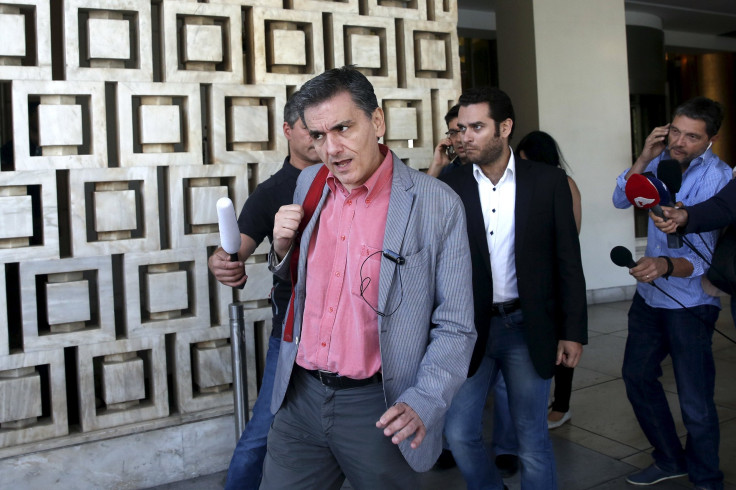Greek Debt Crisis: Bailout Agreement Finalized, Only 'Minor Details' Remain

Update as of 6:20 a.m. EDT: Annika Breidthardt, a spokeswoman for the European Commission, said, at a press conference Tuesday, that a “technical agreement” has been reached between Greece and its creditors.
The agreement, finalized after a round of marathon talks in Athens, reportedly involves the participation of all of Greece’s creditors, including the International Monetary Fund, which had earlier refused to play ball unless Greece was given massive debt relief.
“What we don’t have is a political agreement. The technical agreement has been reached in principle, there are some small details that need to be finalized,” Breidthardt reportedly said, adding that European Commission President Jean-Claude Juncker will hold a teleconference with French President Francois Hollande and German Chancellor Angela Merkel later in the day to hammer out the political agreement.
The German government, on its part, has expressed willingness to vote for the deal only if it holds for “three years not for three days,” Bloomberg reported, citing Jens Spahn, a deputy to German Finance Minister Wolfgang Schaeuble.
“It has to be convincing that it isn’t just about August 20 and an installment payment, but really about how, together with the Greeks, we can have a lasting solution for Greece,” Spahn reportedly told Germany’s ARD television network.
Original story:
Greece and its international creditors on Tuesday finalized the terms of an agreement that would provide the debt-riddled nation a bailout of up to 86 billion euros ($94 billion), according to media reports. A new agreement is crucial for Greece to ensure that it repays 3.4 billion euros ($3.7 billion) to the European Central Bank (ECB) by an Aug. 20 deadline.
“An agreement has been reached. Some minor details are being discussed right now,” an unnamed finance ministry official told Reuters, without divulging details of the agreement.
Greece's Finance Minister Euclid Tsakalotos also confirmed that just "two or three small details" remained in the bailout negotiations.
The new accord -- which comes after another round of marathon talks in Athens between the Greek government and negotiators from the European Central Bank (ECB), the International Monetary Fund (IMF) and the European Stability Mechanism -- would keep the country in the eurozone and stave off potential bankruptcy.
Earlier on Tuesday, Greek government officials said that negotiators had reached an agreement on the country’s fiscal targets.
According to an unnamed official, cited by Reuters, the Alexis Tsipras-led government has committed to a primary deficit target of 0.25 percent of GDP in 2015 and a surplus in 2016. The primary budget surplus target, which does not include interest payments on debt, for 2018 is 3.5 percent.
While details of the entire bailout agreement have not yet been revealed, the BBC reported that it includes provisions to set up a new independent privatization fund. Privatization has been a key issue in the bailout talks since the start of negotiations in 2010.
Other elements of the accord include spending cuts, administrative and pension reforms, tax increases and addressing non-performing loans in the Greek banking sector.
“Finally, we have white smoke,” an unnamed Greek official told Reuters.
© Copyright IBTimes 2025. All rights reserved.






















